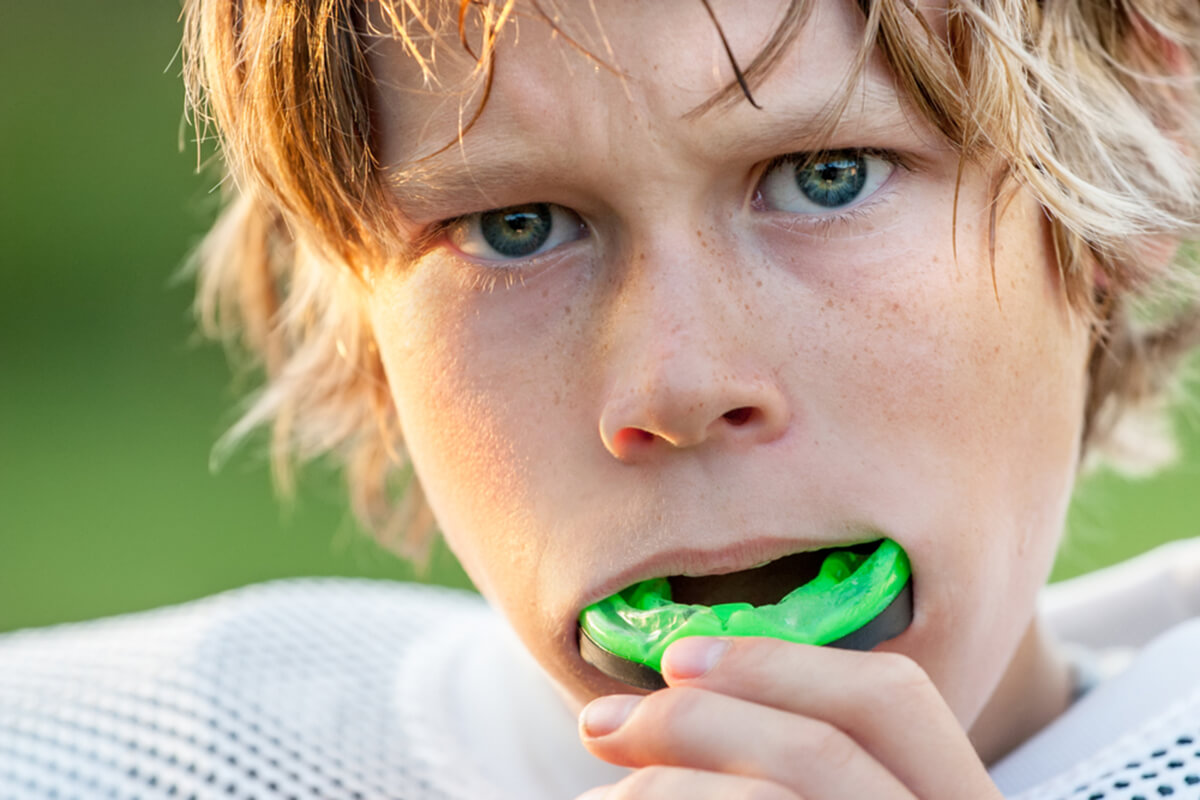Wearing braces as a teenager is hard enough without having to forego sports and recreation because you’re wearing them, too. Oral injuries are among the most common injuries suffered in sports and they can be even more expensive and complex if orthodontic treatment is disrupted at the same time, too. Protecting your teeth while wearing braces and while playing sports is entirely possible, though. Teenagers can continue to play sports without sacrifice and parents can breathe much easier while cheering them on.
What mouth guards can protect you from
The staff at a dental clinic in Davie can provide a custom-designed and molded mouth guard specifically for your young athlete’s teeth that will fit securely and safely over and around their braces. Mouth guards obtained from a dental clinic near you are far superior to retail off-the-shelf or boil-in-the bag options because: you will know that the mouth guard fits your own child’s teeth precisely; and they’ll be shaped to fit over your braces without causing damage (either to the braces or the guard). Mouth guards protect teen athletes in the following ways:
- Mouth guards in Davie prevent teeth from being knocked out in collisions
- Mouth guards prevent teeth from being fractured
- Wearing mouth guards near you will help to prevent “tooth intrusion.” The phrase “tooth intrusion” refers to the injury sustained when a collision pushes the tooth into the gums
- A properly molded mouth guard worn properly will protect the brackets and wires that make up your braces from damage that can: be expensive to repair or replace; delay the progress of your child’s orthodontic treatment; and cause injuries to your lips, cheeks and gums
A custom-fitted mouth guard shaped to fit your child’s teeth precisely will protect their teeth from those injuries and that damage. The same can not be said for boil-and-bite or off-the-shelf options you can purchase at drugstores or sporting goods stores. Those less expensive and generic options are usually better than no protection at all, but will not fit your child’s teeth properly and may be damaged themselves by the braces on your child’s teeth.
There are four particularly important — and exceeding simple — guidelines to follow when it comes to a mouth guard. First, purchase a custom fit mouthguard from a dentist near you. Second, wear that mouth guard. (It won’t work unless you wear it.) Third, clean the mouthguard regularly. Fourth, store the mouthguard properly when not in use. By “properly,” we mean not just tossed into the booth of a gym bag or locker. If you wear a helmet during your sport — football, for example — you can even get a mouth guard with a strap to fasten the mouthguard to your helmet so you’ll know where to find it. In an ideal scenario, though, store your mouth guard in a carrying case to protect it from damage and grime.
Keeping your mouth guard clean is important to avoid the accumulation of bacteria, foul odours and bad taste on the mouth guard. Thankfully, though, eliminating those issues is a simple matter. Simply rinse your mouthguard thoroughly with warm and soapy water every time you use it (and before putting it back in your mouth just to be safe).
We are often asked “What sports require a mouth guard?” Some leagues and schools will make a mouth guard mandatory for their sports, so check with the league or school to see if a mouth guard is required. Aside from those rules, though, athletes participating in any sport with any risk of physical contact and injury (with equipment, surfaces or other athletes) should wear a mouth guard. That recommendation includes a broader variety of sports and recreational activities than you might realize because… well, better safe than sorry.



